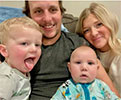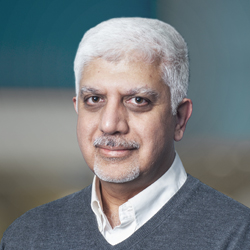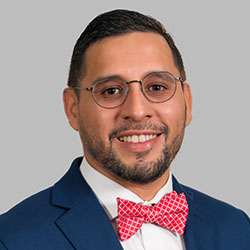Neurocritical Care
Contact the Neurocritical Care Program
What is the Neurocritical Care Program?
Our Neurocritical Care team treats children of all ages with a critical illness or injury that affects their brain, spinal cord or nerves.
To protect your child’s brain, prevent new issues and help your child heal, we:
- Create a custom care plan
- Follow your child closely all through their hospital stay
- Use the latest technology to monitor, measure and help understand what is happening in your child’s brain
- Provide follow-up care to help them recover as fully as possible
Newborns at risk for brain injury receive care in our Neuro Neonatal Intensive Care unit (Neuro NICU), the only one in our region (Washington Wyoming, Alaska, Montana and Idaho).

Read how our neurocritical care team protected Sirish’s brain.
What’s special about Seattle Children’s Neurocritical Care Program?
-
The compassionate experts you need
- Our team features doctors, psychologists and a social worker who specialize in neurocritical care for babies, children, teens and young adults.
- Our Neuro NICU is a special intensive care unit. It provides brain-focused care for your baby if they are born with a neurological condition or are at risk for a brain injury.
- Year after year, U.S. News & World Report ranks Seattle Children's as one of the top children's hospitals in the nation and among the nation's best for neurology and neurosurgery.
- Seattle Children’s is the only hospital in our region with coverage 24 hours a day, 7 days a week by doctors and nurses who specialize in pediatric neurocritical care medicine.
-
Treatment tailored to your child’s unique needs
- Brain injury and nervous system problems can come in many forms. We create a personalized care plan to protect your child’s brain from more injury and help them heal.
- Our team provides expert care while your child is in an intensive care unit (ICU) or regular hospital room.
- After their hospital stay, follow-up care from our brain specialists helps your child reach their full potential as they grow.
-
Teamwork to give your child complete care
Our neurocritical care experts partner with other care teams from across the hospital. This helps them understand what is going on throughout your child’s body and how that affects their nervous system. As needed, our Rehabilitation Medicine team will provide therapies at the right pace to help your child’s recovery.
Our team works closely with these and other programs from across Seattle Children’s:
-
Research to advance care
Our team conducts cutting-edge research and works with other leading organizations to improve neurocritical care for babies and children. This includes research on:
- Brain injuries in children on extracorporeal membrane oxygenation (ECMO)
- Stroke
- Seizures that last for a long time or happen in clusters (status epilepticus)
- Treatment of neonatal seizures
- Long-term outcomes after COVID-19
- Uses of artificial intelligence (AI) in critical care
Conditions We Treat
We treat critically ill and injured children with recent serious issues affecting their nervous system. We also care for children with neurologic issues related to:
- Autoimmune disorders
- When the heart stops beating (cardiac arrest)
- Demyelinating disease
- Infections of the central nervous system
- Complications of liver failure
- Metabolic disorders such as mitochondrial disease, inborn errors of metabolism, Leigh syndrome and mitochondrial encephalomyopathy with lactic acidosis and strokelike episodes (MELAS)
- Neuromuscular disorders like congenital myasthenia gravis and spinal muscular atrophy
- Seizures and epilepsy
- Spinal cord diseases
- Stroke
- Traumatic brain injury
Services We Offer
Neurocritical care diagnostic tests
We use the latest technology to keep a careful watch on your child. We monitor, measure and make pictures of what’s happening in and around their brain. This helps us prevent new issues and treat their condition.
Imaging
- MRI (magnetic resonance imaging)
- CT (computed tomography)
- CTA (computed tomography angiography)
- MRA (magnetic resonance angiography)
- MRS (magnetic resonance spectroscopy)
- Transcranial Doppler ultrasound
- Continuous EEG monitoring
Monitoring
- EEG (electroencephalography) to measure the electrical activity of the brain. This can help diagnose seizures or detect changes in your child’s brain function.
- qEEG (quantitative electroencephalography) to record and analyze the electrical activity in your child’s brain. This allows us to look at changes over time.
- cNIRS (cerebral near infrared spectroscopy) to measure blood oxygen in brain tissue.
- Electromyogram and nerve conduction velocity tests to measure how well nerves send signals to the muscles. This helps tell us if there is nerve damage.
Neuroprotection
To protect your child’s brain from further injury, we may:
- Control your child’s body temperature to avoid fever and further brain injury
- Keep their electrolytes in a stable range that helps their brain work at its best
- Maintain blood flow and oxygen to the brain
- Manage delirium
- Recommend medicines that protect the brain

Learn how keeping babies cool after brain injury improves their survival.
Neuropsychological testing
Neuropsychological testing checks how your child’s brain is developing and working. We assess your child’s memory, thinking, language skills, attention, coordination, senses and personality. The tests help us recommend recovery supports for your child at home and school.
Outpatient follow-up care
At our follow-up clinic, your child receives ongoing care from brain specialists. This ensures they have the best recovery possible and avoid more nervous system injury. Few doctors see children who have lasting effects from a neurological condition. Our pediatric experts know what to look for and can connect you quickly with the right treatment and support.
Depending on your child’s needs, we may:
- Assess your child for therapy services like occupational, physical or speech therapy.
- Adjust medicines.
- Do tests to track your child’s progress.
- Advise you on how to safely transition your child back to school and their regular daily activities.
- Assess your child for sleep issues, new physical limitations, cognitive changes and mental health issues related to their stay in our intensive care unit (ICU). This set of symptoms after a critical illness is called post–intensive care syndrome (PICS).
- Offer resources to help your family cope with your child’s health crisis and hospital stay.
Scheduling a Follow-Up Visit With the Neurocritical Program
- In most cases, we will schedule your child’s follow-up appointment before they leave the hospital. See how to schedule an appointment at Seattle Children’s.
- If you already have an appointment, learn more about how to prepare.
- Learn about resources such as useful links, videos and recommended reading for you and your family.
Who's on the team?
Providers in our Neurocritical Care Program include:
Leadership
-
Division Chief, Neurology; Director, Neurocritical Care Program
-
Division Chief, Neurosurgery; Fellowship Director; Pediatric Neurosurgery; Associate Residency Program Director, Pediatric Neurosurgery; Co-Director, Neurosciences Center; Surgical Director, Pediatric Brain Tumor Program
-
Co-Director, Neurocritical Care Program
-
Co-Director, Neurocritical Care Program
Team
Neurologists
Contact Us
Contact the Neurocritical Care Program at 206-987-2078 for more information.
Providers, see how to refer a patient for Neurosciences care or request critical care patient transport.
Telemedicine at Seattle Children’s
Your child’s first appointment in our clinic will be in person and take about 90 minutes. Later visits may be offered via telehealth (virtual). Learn more about telemedicine at Seattle Children’s.
Paying for Care
Learn about paying for care at Seattle Children’s, including insurance coverage, billing and financial assistance.
Access Additional Resources
Get resources for patients and families, including information on food, housing, transportation, financial assistance, mental health and more.








